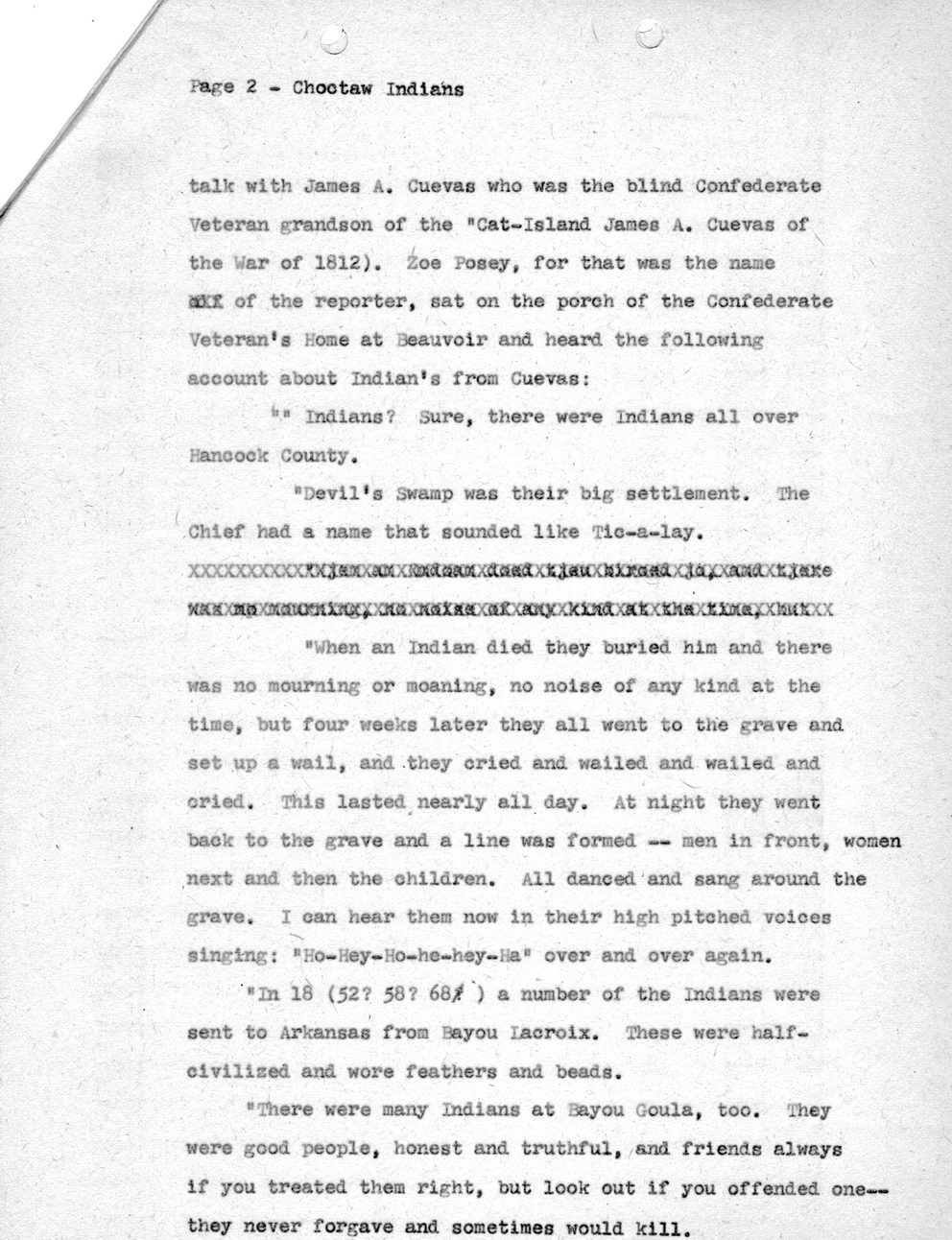This text was obtained via automated optical character recognition.
It has not been edited and may therefore contain several errors.
Pape 2 - Choctaw Indians talk with James A. Cuevas who was the blind Confederate Veteran grandson of the "Cat-Island Janes A. Cuevas of the War of 1812). Zoe Posey, for that was the name o0l£ of the reporter, sat on the porch of the Confederate Veteran’s Home at ieauvoir and heard the following account about Indian’s from Cuevas: * ■ Indians? Sure, there were Indians all over Hancock County. "Devil's Swamp was their big settlement. i'he Chief had a name that sounded like Tic-a-lay. yjcccxxxxx.vca /^fl^atacuiijitjse "When an Indian died they buried him and there was no mourning or moaning, no noise of any kind at the time, but four weeks later they all went to the grave and set up a wail, and -they cried and wailed and wailed and cried. This lasted nearly all day. At night they went back to the grave and a line was formed — men in front, women next and then the children. All danced'and sang around the grave. I can hear them now in their high pitched voices singing: "Ko-Hey-Ho-he-hey-lia" over and over again. "In 18 (52? 58? 68;* ) a number of the Indians were i sent to Arkansas from Bayou Lacroix. These were half-clvilised and wore feathers and beads. "There were many Indians at iiayou Goula, too. They were good people, honest and truthful, and friends always if you treated them right, but look out if you offended one— they never forgave and sometimes would kill.

Native Americans Choctaw-Funerals-by-Joe-Pilet-(2)